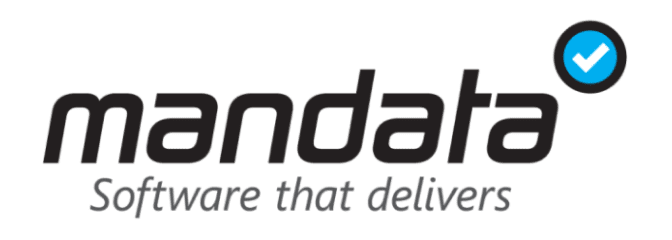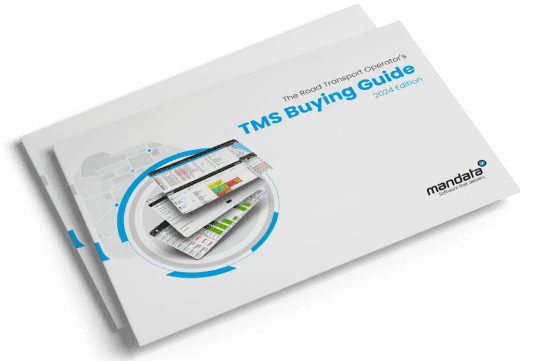Why TASCC is so important for hauliers in agriculture
In this article, we will look at what the TASCC certification is, the importance it holds within transport, why it is so important, and how operators can achieve it.
What is TASCC?
The Trade Assurance Scheme for Combinable Crops (TASCC) is a quality assurance scheme designed to uphold the integrity and traceability of combinable crops within the UK supply chain. Established by the Agricultural Industries Confederation (AIC) in 1997, TASCC plays a crucial role in maintaining high standards in the transportation and storage of crops. Regularly updated to stay updated with the latest industry standards, with the last revision published in 2021, with another update due in 2024. This scheme was developed to ensure that goods are treated responsibly once they leave the farm, and to give peace of mind to both farmers and the end customers.
Made up of 4 codes of practice for key stakeholders in the grain production process, Storage, Haulage, Merchants and Testing, it offers invaluable transparency through every stage of various agricultural processes.
Why it adds value to haulage operators
TASCC certification demonstrates haulage operators’ commitment to both regulatory compliance and the highest standards in transporting combinable crops. By adhering to TASCC guidelines, operators demonstrate their dedication to quality assurance, biosecurity, and traceability. This commitment adds significant value to their services, fostering trust among farmers, suppliers, and other stakeholders in the agricultural supply chain.
Haulage operators benefit from TASCC certification through increased market access and improved reputation. Many suppliers and farmers prefer working with accredited operators, knowing that their crops are handled with the utmost care and in compliance with industry standards. This, in turn, can lead to expanded business opportunities and long-term partnerships. The major supermarkets generally only work with providers with an AIC scheme, as they only trust accredited suppliers.
White’s Recycling, a leading UK-based waste management haulier says, “The TASCC certification is a formal recognition of the work that we already do, ensuring that our operations are carried out safely and effectively.” Adding, “This certification requires an annual independent audit to confirm our ongoing compliance, ensuring that our customers can continue to trust us with their haulage needs.”
With the UK’s exit of the European Union, many EU regulations were abandoned, leaving many businesses vulnerable, or unable to be held accountable for quality assurance. Fortunately, TASCC has ‘mutual recognition’ with other EU schemes, enabling accredited operators to export and transport goods abroad legally and safely.
How to achieve a TASCC certification
Achieving TASCC certification involves a comprehensive process that involves various aspects of crop transportation and storage. The membership process involves applying to the AIC, undergoing rigorous audits by an approved certification body, ensuring that employees receive relevant training, maintaining accurate documentation, and committing to continuous improvement in line with ever-evolving industry standards.
Operators must ensure that drivers are aware of and comply with the International Database for Transport of Feed (IDTF). This ensures all required cleaning procedures are carried out.
If awarded, operators must then adhere to the strict guidelines set out by the TASCC scheme, relating to vehicle hygiene, documentation, and continuous personnel training. Failure to do so could result in suspension of TASCC membership.
Why using a TMS can assist in the certification process
Haulage operators using a transport management system (TMS), can take advantage of the various features provided to help work towards a TASCC certification. Here are a few examples of how they can help with some of the specifications set out in the requirements:
- Asset Inventory: TMS software logs all details of vehicles and trailers across the fleet, including information such as vehicle type, identification codes and registration number. This keeps all details secure in one location, ready for audits.
- Collection / Delivery Instructions: Using an integrated electronic proof of delivery (POD) app, the required written customer confirmation can be safely and quickly captured digitally when collecting or delivering goods. These apps also hold job information with goods codes and details, ensuring the goods are identified and handled most appropriately.
- Previous job log: A TMS provides visibility over past completed jobs, allowing operators to see the type of work previously carried out by specific vehicles, helping to avoid any possible cross-contamination.
- Split bulk orders: Bulk order templates can be used to split large orders into several jobs via TMS software. They provide some extra settings to allow the entry of job details from a bulk order and keep track of how much of the order has been delivered already.
- Quality checks: Additional applications allow quality checks to be conducted before the goods being transported or when goods are delivered. This helps maintain both customer expectation levels, but also customer trust in the operator’s reliability. This can also be used for incident reporting.
- Specific delivery terms: Using TMS software that allows transport route planning, users can pinpoint exactly where the delivery point is for the customer, even if there is limited access.
- Weighbridge integration: To log accurate recordings of bulk job details, TMS software integration with weighbridges provides seamless data capture and visibility within the transport system.
In conclusion, TASCC certification is a mark of excellence for haulage operators in the combinable crops supply chain. Utilising a TMS not only streamlines the certification process but also enhances overall operational efficiency, ensuring that operators meet and exceed the stringent standards set by the scheme.
To see how a Mandata TMS could help improve your operational standards, download our TMS Buyer’s Guide for more information.

